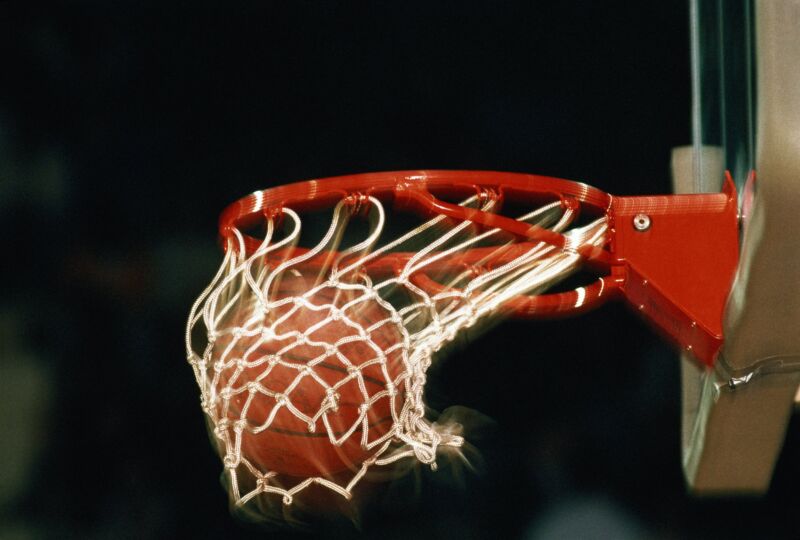
Sports leagues are urging the US to require “instantaneous” takedowns of pirated livestreams and new requirements for Internet service providers to block pirate websites.
The Digital Millennium Copyright Act of 1998 requires websites to “expeditiously” remove infringing material upon being notified of its existence. But pirated livestreams of sports events often aren’t taken down while the events are ongoing, said comments submitted last week by Ultimate Fighting Championship, the National Basketball Association, and National Football League.
The “DMCA does not define ‘expeditiously,’ and OSPs [online service providers] have exploited this ambiguity in the statutory language to delay removing content in response to takedown requests,” the leagues told the US Patent and Trademark Office in response to a request for comments on addressing counterfeiting and piracy.
The leagues urged the US “to establish that, in the case of live content, the requirement to ‘expeditiously’ remove infringing content means that content must be removed ‘instantaneously or near-instantaneously’ in response to a takedown request.” The leagues claimed the change “would be a relatively modest and non-controversial update to the DMCA that could be included in the broader reforms being considered by Congress or could be addressed separately.” They also want stricter “verification measures before a user is permitted to livestream.”
The UFC separately submitted comments on its own, urging the US to require that ISPs block pirate sites. The UFC said that a “significant and growing” number of websites, typically operated from outside the US, don’t respond to takedown requests and thus should be blocked by broadband network operators. The UFC wrote:
Unlike many other jurisdictions around the world, the US lacks a “site-blocking” regime whereby copyright owners may obtain no-fault injunctions requiring domestic Internet service providers to block websites that are primarily geared at infringing activity. A “site-blocking” regime, with appropriate safeguards to prevent abuse, would substantially facilitate all copyright owners’ ability to address piracy, including UFC’s.
Website-blocking is bound to be a controversial topic, although the Federal Communications Commission’s now-repeated net neutrality rules only prohibited blocking of “lawful Internet traffic.” While the UFC said it just wants “websites that are primarily geared at infringing activity” to be blocked, a site-blocking regime could be used more expansively if there aren’t strict limits.
Big Tech opposes major changes
A Big Tech lobby group urged the US to avoid requiring more onerous enforcement obligations. The Computer & Communications Industry Association (CCIA) said the current notice-and-takedown legal framework provides “an efficient way to expeditiously remove allegedly infringing content from Internet services, while fostering cooperation between relevant stakeholders.”
The CCIA continued:
Under both existing copyright law and trademark law, there is no obligation on the part of online service providers to proactively monitor or enforce infringements. Rather, this is a matter of discretion and policy for each service, and should remain that way. The imposition of proactive enforcement obligations would be less effective, would inevitably negatively impact free speech and legitimate trade, and would introduce untold unintended consequences—digital services would be disincentivized from innovating and would do only what the law required, benefiting no one.
The CCIA also told the US that “the most effective way to prevent infringement is to ensure that members of the public, most of whom want to pay for content, can lawfully consume works digitally whenever and wherever they want.”
Google submitted comments touting its anti-piracy systems while pointing out that the takedown process is too easily abused. “Unfortunately, we have seen certain actors abuse our takedown system as a pretext for censorship and anticompetitive behavior,” Google said. “We are committed to ensuring that we detect and reject bogus infringement allegations, such as removals for political or competitive reasons, even as we battle online piracy.”
Premier League wants “live takedown tool”
The US received comments about Automated Content Recognition (ACR) systems from England’s Premier League. ACR systems can “prevent unauthorized streams being uploaded onto the Internet,” the league said.
YouTube and Facebook already have such systems, the Premier League said. But for platforms without ACR, the Premier League said it wants live takedown tools that rights owners would operate themselves.
“The Premier League understands that not all intermediaries are able to develop and provide ACR systems,” the league said. “In such cases, a live takedown tool, to be operated by the rightsowners, is a technologically simple and low-cost alternative. Such tools need to be easy to use, and a rebuttable presumption should be applied in favour of the rightsowner rather than the streamer.”
https://arstechnica.com/?p=1964033

